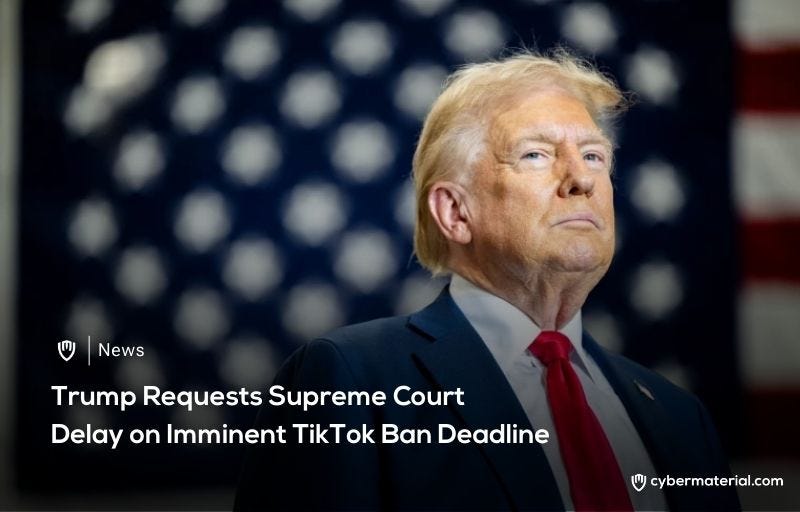
President-elect Donald Trump has filed a request with the U.S. Supreme Court to delay the implementation of a law that would force TikTok’s parent company, ByteDance, to sell the popular video-sharin…

President-elect Donald Trump has filed a request with the U.S. Supreme Court to delay the implementation of a law that would force TikTok’s parent company, ByteDance, to sell the popular video-sharin…